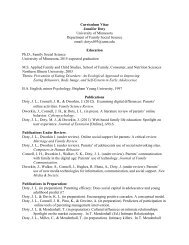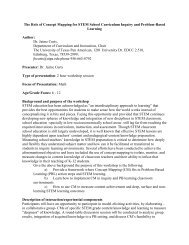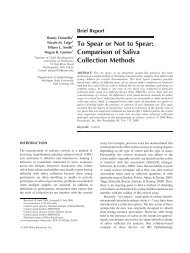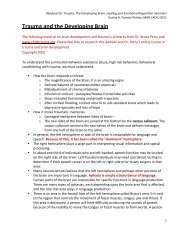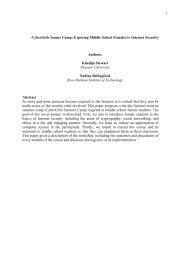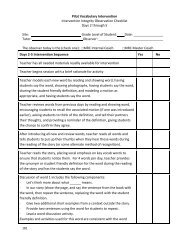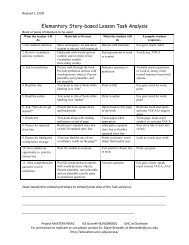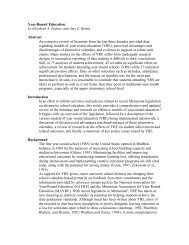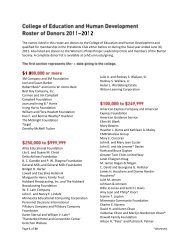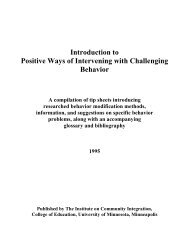COMING HOME - College of Education & Human Development ...
COMING HOME - College of Education & Human Development ...
COMING HOME - College of Education & Human Development ...
Create successful ePaper yourself
Turn your PDF publications into a flip-book with our unique Google optimized e-Paper software.
A long<br />
winter’s<br />
nap ____<br />
18 CONNECT WINTER 2013<br />
Less than 20 years ago,<br />
discoveries about teen<br />
sleep began changing<br />
school start times in<br />
Minnesota. Now it’s a<br />
national movement.<br />
ONE MORNING IN 1996, Kyla Wahlstrom<br />
got a call from a local superintendent. His<br />
school board had just decided to change<br />
the high school start time from 7:15 to 8:30<br />
the next fall, only months away. Emerging<br />
research on pr<strong>of</strong>ound differences in teen<br />
sleep patterns was so strong that the board<br />
believed a later start time could help their<br />
students. The superintendent called<br />
Wahlstrom because she directs the U’s<br />
Center for Applied Research and<br />
<strong>Education</strong>al Improvement (CAREI), which<br />
examines new things happening in schools.<br />
Wahlstrom admits she was skeptical.<br />
But Edina went through with the plan<br />
and the results astounded everyone.<br />
A year later, all seven high schools in<br />
Minneapolis followed suit. CAREI was<br />
asked to investigate and report the findings.<br />
Now, 15 years later, as author <strong>of</strong> the School<br />
Start Time Study, Wahlstrom is called upon<br />
by school districts across the country that<br />
are considering the change. Here are her<br />
answers to some common questions.<br />
How is teen sleep different than sleep for<br />
anybody else?<br />
Sleepiness is caused by melatonin’s release<br />
in the body, which is regulated by the<br />
central nervous system. Medical research<br />
shows that teenagers—different from<br />
young children and adults—have a distinct<br />
sleeping and waking cycle. Almost all teens<br />
in the world, not just in our country, tend<br />
to fall asleep biologically about 10:45 p.m.,<br />
and their bodies and brains want to stay<br />
VEER



